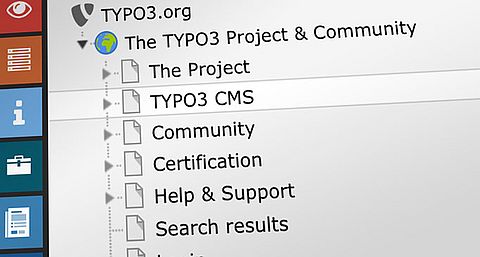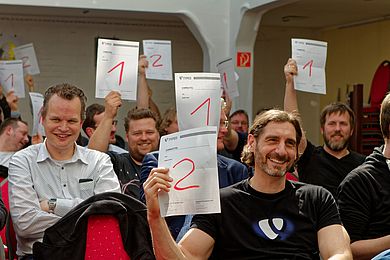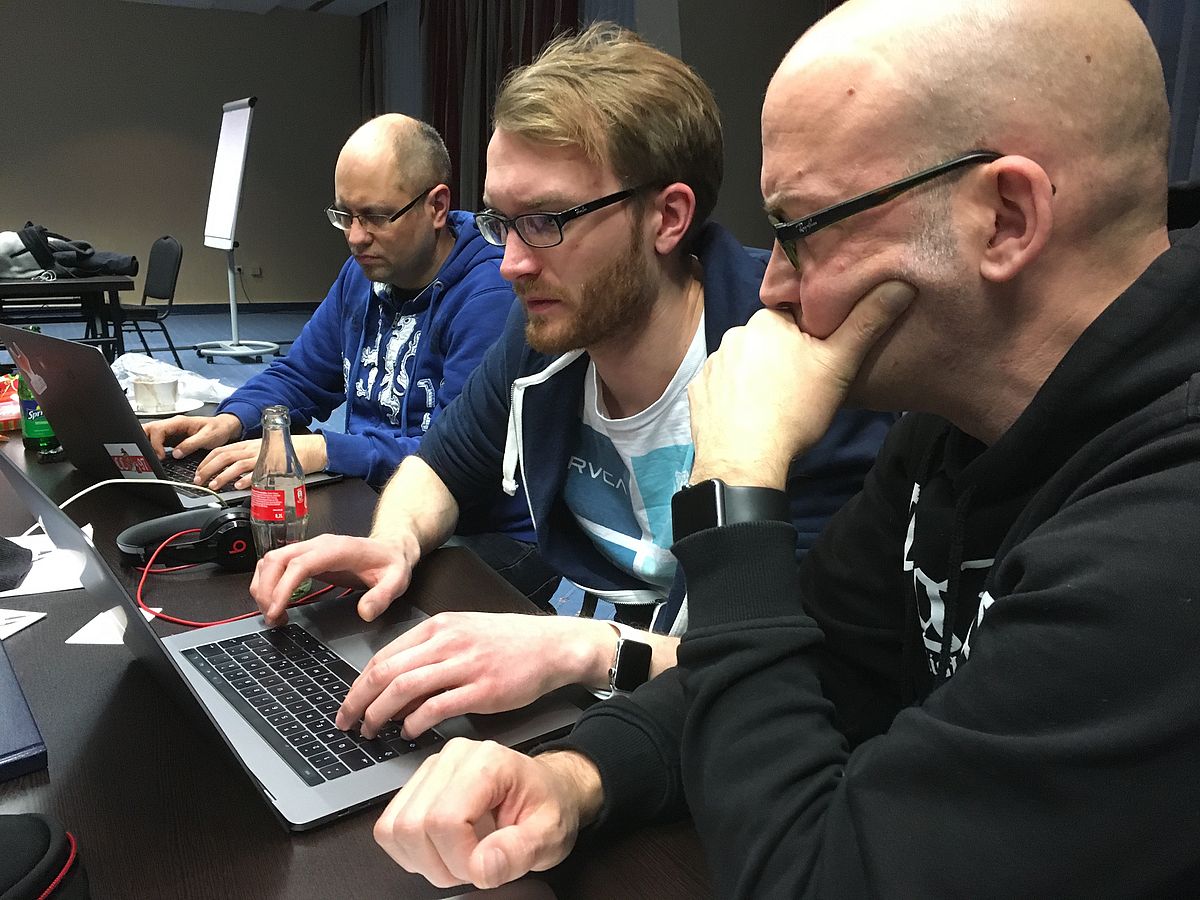Thank you to the TYPO3 Community Team Leads for helping out with this article on top of everything they do for the project and community.
The community contribution section here on TYPO3.org is the hub for everything related to community events and TYPO3 CMS improvements. No matter your prior experience and interests, you can find a way to share your skills where they’re needed most.
The easiest way to do that is by finding a team of people to work with. Bonus: Research suggests the social recognition you get will help keep you motivated.
What Motivates Open Source Contribution?
In some ways you know it’s right to contribute to open source, but you might feel inhibited to start. You’re not alone. Researchers found patterns in the barriers that prevent newcomers from contributing, and perhaps you can relate. Most people who stay away from contribution do so because they don’t have time: it takes away from earning money, they have limited skills and knowledge, or they have trouble setting up an appropriate development environment.
Researchers found that open source contributors were more motivated to contribute when the process was clear, when they would get a “feel good factor” or improve their reputation, and most importantly, when they needed those fixes themselves, as soon as possible.
Volker Neuenhaus of Pagemachine AG is lead on the TYPO3 Design Team. Volker tells me that he enjoys the social side of contribution. “Both me personally and our company benefit from getting to know interesting people when working with teams or visiting events.” And of course, as he said, the better TYPO3 gets with contribution, “the better it is for everyone.”
Researchers also found that individuals were more likely to contribute code to open source projects when they focused on the benefits of improving their professional reputation and self-development. That’s why contributors get shout-outs for their ongoing involvement in monthly “Developer Appreciation Day” posts on typo3.com.
Stefan Busemann, of in2code GmbH, and product owner of the typo3.org Team, echoed the findings about self-development. He said to keep people motivated, “the most important thing is a good spirit, and also that people should profit from their work–earned reputation and also skills, especially for technologies they don’t know so far.” Stefan said there are many ways he personally benefits from contribution. “I learn a lot from other people. In all the projects I am involved in I have found new friends and I built up a personal network where I can receive help; My business also benefits from the positive image we create with our contributions.”
If code contributors are motivated by personal development, on the other hand, the same researchers found those contributing documentation were motivated by altruism. Want to make yourself feel good? Contribute to documentation!
And now’s your chance, as the the Documentation Team is asking the community to step up and get involved. Martin Bless, certified TYPO3 integrator and Documentation Team Lead told me, “We just had the second ever T3DocTeam sprint in July 2018, the previous one was in 2014.” They’ve grown the team too, “After being more or less only one person in the ‘team’ we are now three.” Like most of the TYPO3 community, they prefer to meet via Slack and they’ve moved away from email because “it doesn't work well and is too time consuming.”
Right now they are focused on getting the word out to inspire people to get involved. Martin said “Our first task is to elaborate on our mission statement in our team document.” They are open to new ideas too. “If somebody wants to come up with a ‘meta issue’ about TYPO3 documentation, feel free to do that as an issue in our team document.”
The best way to validate your professional reputation and gain the feel-good factor of altruism is by connecting to others, and that’s where teams come in.
Why Getting Involved in a Team Will Help
Four ways to contribute to TYPO3 include writing code for and testing TYPO3 core or extensions, writing documentation, and supporting other users online. Yet if you look at a list of open issues, it may be hard to see where to start.
Like other open source CMS communities, TYPO3 contribution is organized into teams. By dividing the big project down into smaller groups, people can work together to motivate each other. “There is nothing like a magic trick” to get people involved says Volker. He tends to ignore it when people don’t respond and instead keeps the door open, making sure to keep asking people to get involved.
Browse the list of community teams here to find where you can contribute the most.
There are ten teams working together to improve TYPO3 CMS, from teams like the Development, Design and Documentation teams, to teams that grow the audience such as the Academic and Content teams. Community team members are tapped right into the centre of each initiative and can quickly guide you where to start.
TYPO3 Contribution Teams
Each team coordinates online meetings, in-person events, and sprints. Check out meet the community to discover more and find the community team you think you can contribute to most.
TYPO3 Development
This team is dedicated to developing and maintaining the central parts of TYPO3 CMS. They recently welcomed new Core Team Members!
Right now: The Core Team is getting ready for TYPO3 CMS v9.5 LTS release on 2 Oct. 2018. Meanwhile, they are reorganizing the contribution workflow to define the goals and make it easier for new contributors to get involved.
What’s next? TYPO3 Core Code Sprint Berlin: Berlin, Germany, 25–28 October 2018
Design
The Design Team is responsible for the branding, design, and visual communication of TYPO3 CMS (not for the design of the CMS itself!)
Right now: Do you have design skills? They would love to grow the team so it’s a great time to get involved. They just had a Design Team sprint in August.
What’s next? Keep an eye out for sprints listed in the community events calendar.
Documentation
The Documentation Team provides exhaustive, quality documentation about TYPO3 products for all users, with the help of the community.
Right now: It’s easy to get involved. Most pages say "Edit me on GitHub" so you can use a pull request or GitHub issue. Follow this tutorial on how to contribute to docs.typo3.org (video 4:32)
What’s next? Best way to keep in touch is the #typo3-documentation Slack channel.
Education & Certification
The committee is responsible for the TYPO3 education strategy, enabling easy access to learning materials, as well as official certifications.
What’s next? Follow @typo3education for updates.
Content
The Content Team work on blog posts like this one. We need your help to write, translate, and proofread content. No coding skills are required. You can support us on a regular basis or when you have time.
Right now? Contact Mathias Bolt Lesniak directly to get involved.
Also related: Communication Coordination Committee. The Committee coordinates the communication and marketing of the TYPO3 GmbH and the TYPO3 Association, through a unified workflow and production pipeline.
Security
Security is taken very seriously by the developers of TYPO3. The TYPO3 Security Team handles incidents and responds according to strict rules to keep TYPO3 as secure as possible.
Server Administration
The TYPO3 Server Administration Team maintains the server infrastructure of the TYPO3 project. They also administer several central services and websites.
Right now? They are looking for people with experience and interest in configuration management or monitoring who can join bi-weekly online meetings.
What’s next? Follow @TYPO3server on Twitter.
TYPO3.org
The TYPO3.org Team develops and maintains the TYPO3.org website, the Extension Repository, Events and Certification Listings, and much more.
Right now? The bottleneck is frontend developers, especially those who are able to adapt an existing design and add new functionality.
What’s next? Sign up for the TYPO3.org sprint Sept. 12–14 in Rosenheim, Germany. Join the Slack channel #t3o-development to keep in touch.
Academic
The TYPO3 Academic Committee is made up of TYPO3 Association members from universities that use TYPO3 CMS for their homepages.
What’s next? TYPO3 University Day 2018 in Mainz, Germany on 25–26 September. Use the hashtag #T3UD18 to follow updates.
Ready to get Started?
To get involved in contribution you will need three things:
-
A Slack account — find out how to Use Slack in the TYPO3 Community
-
For Docs: A GitHub account — check out this tutorial.
Once you start contributing it’s easy, and if you’re stuck on where to get started, come into TYPO3 Slack and talk with the community.





